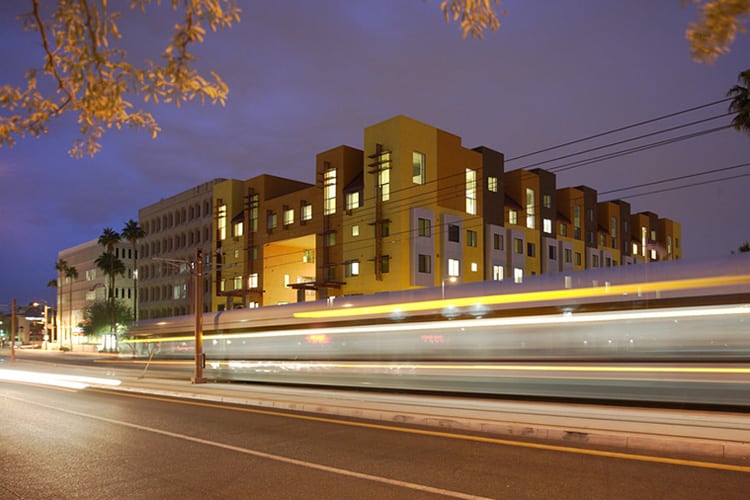A minimum wage employee must work 54 hours a week to afford a one-bedroom apartment in Maricopa County.
In Arizona, 78 percent of low-income families are severely cost-burdened by rent. What this means is that after spending 30 percent or more of their income on shelter, they will find it difficult to afford necessities like food, transportation and medical care. The groups most often impacted are those who fall into the “extremely low-income” category including seniors, people with disabilities and the working poor. These people are part of our community, and they need our help.

A recent study conducted by the National Low Income Housing Coalition placed the Phoenix-Metro area among the top 10 cities with the most severe shortage of rental homes affordable to extremely low-income households. Currently, more than 10,000 Arizonans lack permanent housing and are either living in overcrowded shelters or on the streets.
As the voice of real estate in Arizona, helping people find a place to call home is our daily business, and that means a lot more than picking the right neighborhood and finding the perfect house on the MLS. It means advocating for fair housing, protecting private property rights and taking action to help those most impacted by the affordable housing crisis.
One answer to reducing homelessness is to build more Permanent Supportive Housing (PSH) and Low-Income Housing. The challenge, as always, is funding.
That’s where the Arizona Housing Fund (AZHF) comes in. A creative solution to this problem, the AZHF was formed in 2019 as a private sector, philanthropic approach to battling homelessness.
The AZHF raises funds through both traditional donations and a unique, voluntary escrow donation program. This program gives every home buyer and seller in Arizona the opportunity to donate $25 (or more) to the AZHF using a simple, one-page sheet that’s been added to the standard sales and escrow package.
The AZHF’s Advisory Committee will identify potential grant recipients, review grant proposals and recommend grant awards to nonprofit agencies that successfully build and operate PSH, Low-Income and Working Poor Housing. These equity grants will enable more housing units to be constructed with the ultimate goal of reducing homelessness. Examples of nonprofits who might benefit from the AZHF include UMOM, Catholic Charities, Salvation Army, Save the Family, St. Vincent De Paul, CPLC and U.S. Veterans Initiative.
The AZHF Advisory Committee, of which I am proud to be a part of, is comprised of volunteer business and community leaders. The organization has zero overhead costs allowing 100 percent of funding to go directly to qualifying nonprofits.
The Arizona Housing Fund won’t alleviate the affordable housing crisis overnight, but we must start somewhere. I encourage all home shoppers to consider donating to the escrow fund. Together, we can make a difference.
K. Michelle Lind is Chief Executive Officer for the Arizona REALTORS.




